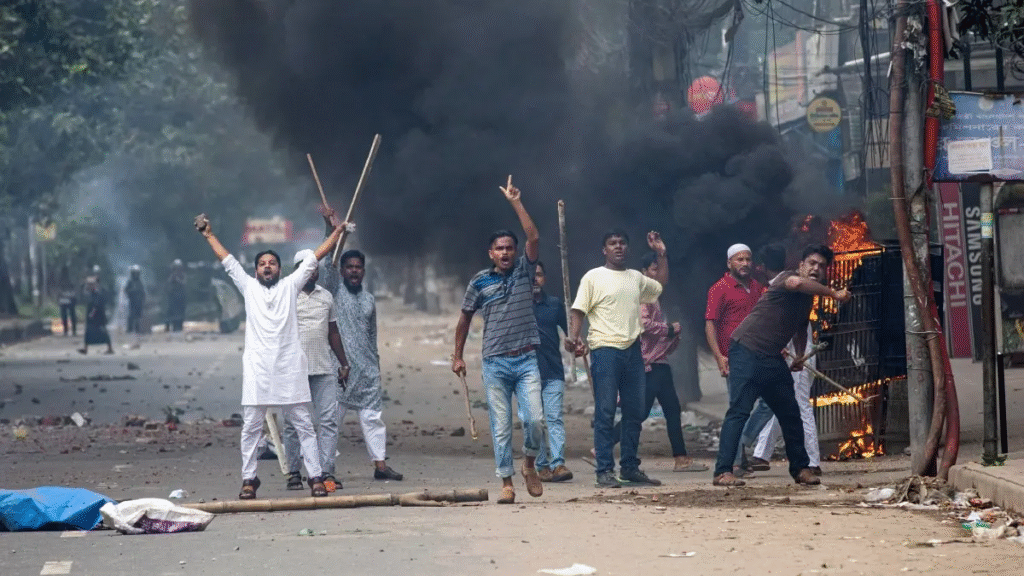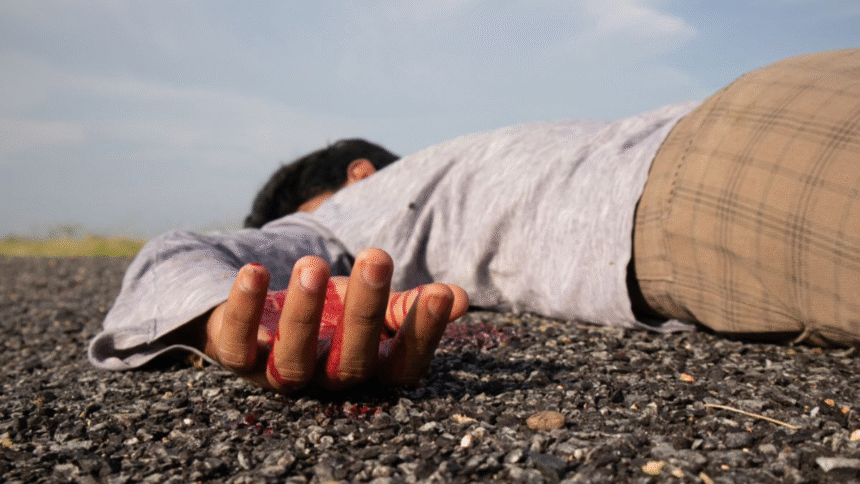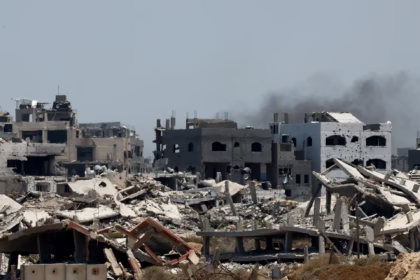Daylight Murder in Old Dhaka Shocks Nation: 1 Killed, 4 Witnesses Missing | Lawlessness in Bangladesh Exposed
A shocking daylight murder in Old Dhaka has raised urgent concerns over growing lawlessness in Bangladesh. One man was killed in broad daylight, with 4 eyewitnesses now missing. Here are 5 disturbing facts that reveal the extent of the crisis
On a humid afternoon in Old Dhaka, the heart of Bangladesh’s capital city, a man was brutally murdered in broad daylight, sending shockwaves across the country. The brazen killing, which took place in front of stunned bystanders, has once again raised urgent questions about the state of law and order in Bangladesh, especially in its historic yet increasingly chaotic urban centers. As authorities scramble for answers, the public is left to grapple with a disturbing reality: no one is truly safe—not even in the middle of the day, in a crowded neighborhood.
According to eyewitnesses and local media reports, the incident occurred around 2:30 PM in a bustling street in the Lalbagh area of Old Dhaka. The victim, a 32-year-old local businessman named Mohammad Rashed, was attacked by two assailants armed with machetes. The attackers reportedly arrived on a motorcycle, cornered Rashed near a tea stall, and repeatedly struck him in the head and chest before fleeing the scene.

Bystanders were paralyzed by fear as the murder unfolded in less than 90 seconds. Some attempted to intervene, but the weapons and the speed of the attack left most in shock. Within minutes, videos of the gruesome assault began circulating on social media, amplifying public outrage.
Rashed was rushed to a nearby hospital but was declared dead on arrival. His family and neighbors gathered outside the Dhaka Medical College Hospital, demanding justice. “We’ve been complaining about threats to his life for weeks. No one took us seriously,” said his brother, Mohammad Asif, holding back tears.
Despite the fact that CCTV cameras in the area captured the entire attack, the police failed to make any arrests within the first 24 hours. To make matters worse, four key witnesses who spoke to local media shortly after the killing have since gone missing, sparking fears of intimidation and a wider criminal cover-up.
Old Dhaka, known for its vibrant culture and centuries-old architecture, has become a flashpoint for gang violence, extortion rackets, and political turf wars. The tight alleys, overcrowded markets, and lack of surveillance have made the area a hotbed for organized crime.
In recent years, residents have reported a spike in:
- Daylight robberies
- Targeted killings
- Police inaction
- Politically protected criminal networks
A local shopkeeper, who wished to remain anonymous, said: “We’ve learned to live with fear. If someone speaks out, they disappear. The murder of Rashed is just the latest reminder that lawlessness rules here.”
The Dhaka Metropolitan Police (DMP) initially denied claims of negligence, stating that a “special investigation unit” had been formed. But that announcement did little to calm the public. Critics argue that this is a pattern of deflection and delay seen in many high-profile crimes across the country.
A police spokesperson said:
“We are working on multiple leads, and the CCTV footage is being analyzed. We urge people not to speculate.”
However, social media erupted with criticism. Hashtags like #JusticeForRashed and #DhakaLawlessness began trending on X (formerly Twitter), with users accusing the government of failing to uphold basic public safety.
Zero Arrests in the First 24 Hours
Despite having clear CCTV footage and eyewitness accounts, authorities failed to detain the attackers or identify them conclusively.

4 Witnesses Now Missing
Four people who were interviewed by TV channels hours after the murder have since vanished, raising fears of witness intimidation or worse.
Increase in Daylight Crimes
According to data from the Bangladesh Crime Statistics Bureau, daylight murders increased by 17% in 2024, with most going unsolved.
CCTV Cameras Ignored
Despite surveillance coverage in many areas, footage is often “lost,” delayed, or unusable” due to lack of technical capacity or administrative will.
Only 1 in 5 Murders Solved
Reports suggest that over 80% of murder cases in Dhaka remain unsolved, with delays in forensics, weak prosecutions, and political interference being major hurdles.
While this murder occurred in Old Dhaka, it reflects a broader issue across Bangladesh. From Chattogram to Rajshahi, similar patterns are seen:
- Crimes committed in public
- No immediate law enforcement response
- Victims’ families left without justice
- Politically connected suspects shielded
In January this year, a university student in Sylhet was murdered in front of his campus, and despite video footage and multiple witnesses, no one has been convicted to date.
Within hours of the murder, hundreds of people gathered in protest in front of the Lalbagh Police Station. Holding banners reading “Enough is Enough” and “Who’s Next?”, protesters demanded immediate action.
Human rights groups have also condemned the killing. The Bangladesh Human Rights Forum issued a statement saying:
“This murder is not an isolated incident—it is the symptom of a failed justice system where criminals are emboldened, and victims are abandoned.”
Meanwhile, the victim’s family has called for an independent judicial probe, stating they have no faith in the police investigation.
The government of Prime Minister Sheikh Hasina has come under increased scrutiny for failing to curb rising violence in urban areas. While the administration maintains that “crime rates are under control,” high-profile killings like this tell a different story.
Opposition parties have seized the moment to highlight the ruling party’s failures. BNP spokesperson Fakhrul Islam Alamgir said:
“The streets of our cities have become battlegrounds, and the state looks the other way. Rashed’s blood is on the government’s hands.”








